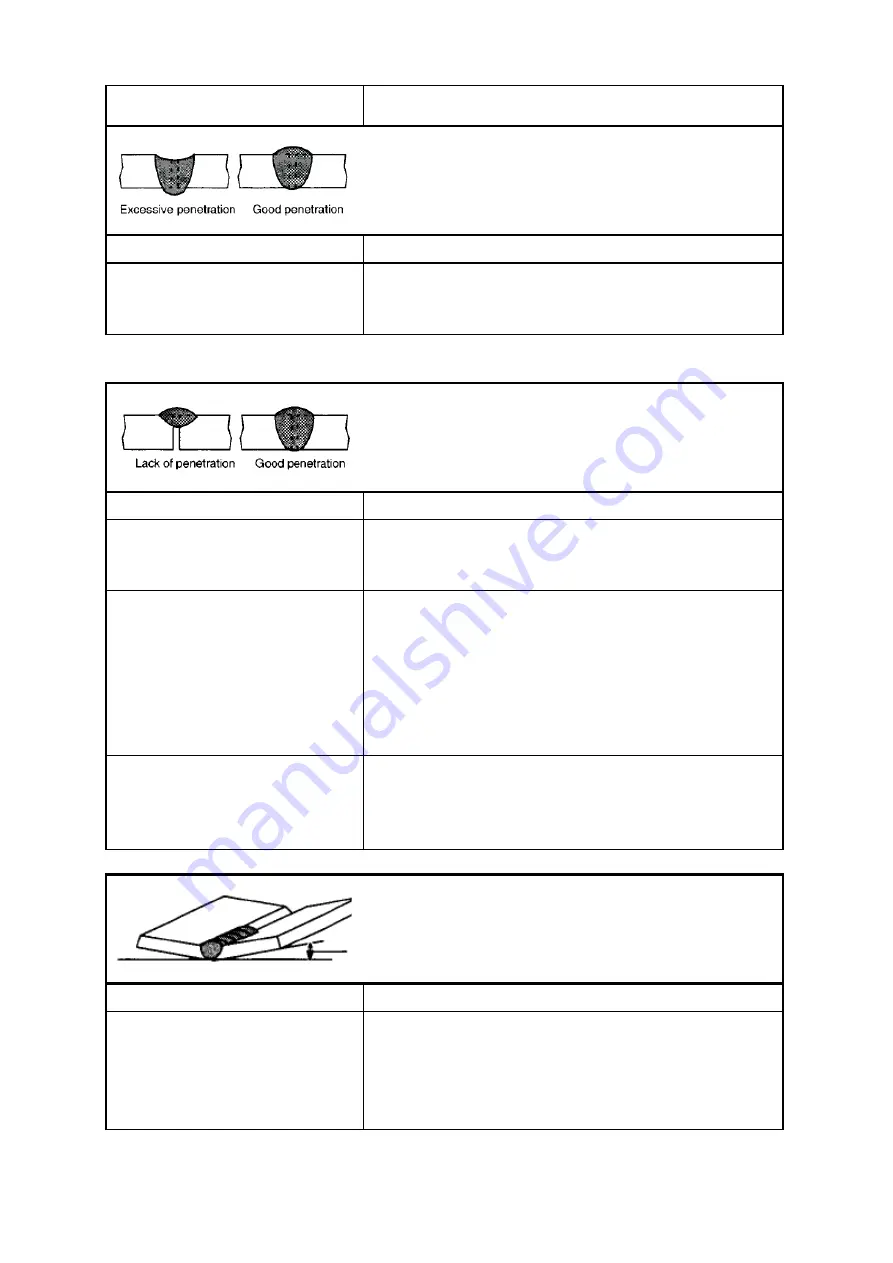
30
feeder or liner.
Excessive penetration
Weld metal melting through base metal and hanging
underneath it.
Possible causes
Corrective actions
Excessive heat input.
Select lower voltage range and reduce wire feed speed.
Increase travel speed.
Lack of penetration
Shallow fusion between weld metal and base metal.
Possible causes
Corrective actions
Improper joint preparation.
Material too thick. Joint preparation and design must provide
access to bottom of groove while maintaining correct welding
wire extension and arc characteristics.
Improper welding technique.
Maintain normal gun angle of 0 to 15 degrees to achieve
maximum penetration.
Keep arc on leading edge of weld puddle.
Be sure welding wire extends no more than ½ in beyond
nozzle.
Insufficient heat input.
Select higher wire feed speed and/or select higher voltage
range.
Reduce travel speed.
Distortion
Contraction of weld metal during welding that forces base
metal to move.
Possible causes
Corrective actions
Excessive heat input.
Select lower voltage range and reduce wire feed speed.
Increase travel speed.
Use restraint (clamp) to hold base metal in position.
Make tack welds along joint before starting welding operation.
Weld in small segments and allow cooling between welds.
Summary of Contents for TM250C
Page 2: ...2...














































